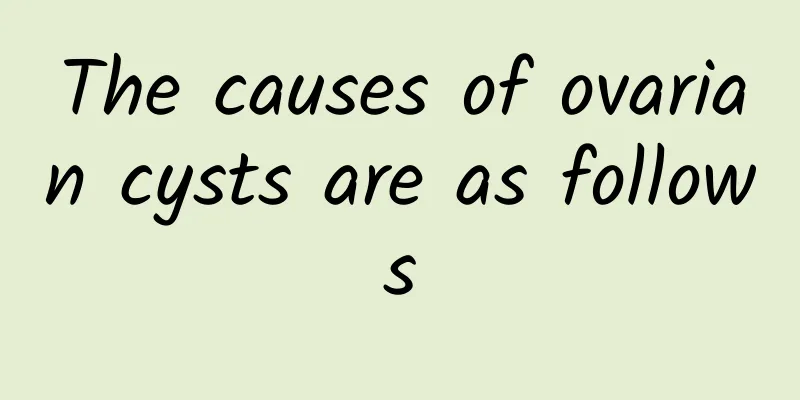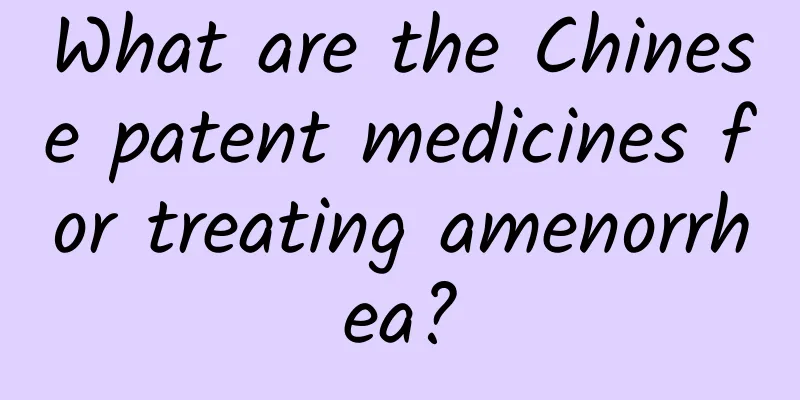What are the diseases caused by uterine fibroids? What are the symptoms of uterine fibroids?

|
What are the diseases caused by uterine fibroids? What are the symptoms of uterine fibroids? Uterine fibroids are a common gynecological disease that brings trouble and pain to many women. So, what causes uterine fibroids? What symptoms can indicate whether a woman has uterine fibroids? Next, we will analyze and answer these questions in detail. 1. What are uterine fibroids? Uterine fibroids, also known as uterine leiomyoma, are benign tumors that usually grow within the uterine wall and are formed by uterine smooth muscle cells. The size, number, and location of uterine fibroids can vary from woman to woman. Some patients may have only one small tumor, while others may have multiple larger tumors. Although uterine fibroids are not considered cancer, they can still have a certain impact on women's lives and health. 2. What causes uterine fibroids? Although the exact cause of uterine fibroids is still unknown, during the research process, scientists have discovered some factors that may be related to their formation, including genetic factors, estrogen levels, and the role of reproductive hormones. Genetic factors are considered to be one of the important factors in the formation of uterine fibroids. If a woman's mother or sister has uterine fibroids, then she herself is also prone to uterine fibroids. In addition, increased estrogen levels are also an important cause of uterine fibroid formation. Estrogen is a female hormone that can promote the growth and renewal of the endometrium. Too much estrogen can stimulate the growth of uterine smooth muscle cells, leading to the formation of uterine fibroids. 3. Symptoms of uterine fibroids 1. Menstrual abnormalities: Uterine fibroids can cause menstrual abnormalities, including prolonged menstrual cycles, increased bleeding, and prolonged menstruation. Some patients may experience irregular menstruation or increased blood clots. 2. Pelvic pain: The presence of uterine fibroids can increase the shedding and spasm of the endometrium, causing pelvic pain. The degree and duration of pain will vary depending on individual differences in patients. 3. Abnormal urination: The growth of uterine fibroids may put pressure on the bladder, causing difficulty in urination or frequent urination. 4. Compression of abdominal organs: When uterine fibroids grow larger, they may compress nearby abdominal organs, such as the bladder or rectum. This can cause symptoms such as constipation and bloating. 5. Infertility: The presence of uterine fibroids will affect the embedding of the endometrium, making it difficult for the fertilized egg to attach and grow, which may lead to infertility or repeated miscarriage. in conclusion: In summary, uterine fibroids are a common gynecological disease, and their formation is closely related to genetic factors, increased estrogen levels, and other factors. At the same time, uterine fibroids can also bring a series of symptoms, such as abnormal menstruation, pelvic pain, abnormal urination, compression of abdominal organs, and infertility. For women with uterine fibroids, it is very important to seek medical treatment in time and actively treat them in order to restore health and improve the quality of life. |
>>: What to drink to treat uterine fibroids? What to drink to help uterine fibroids?
Recommend
Eliminate edema = drink lemon water Actress gets rid of baby fat
Several female stars have lost weight recently, s...
Abnormal yellow vaginal discharge with a bit of acidity
Abnormal leucorrhea that is yellow and has a sour...
What are the causes of cervicitis?
According to surveys, the incidence of cervicitis...
How to have a miscarriage at four months
Abortion in the fourth month of pregnancy cannot ...
Where is a good hospital for cervical erosion?
Cervical erosion is a gynecological disease that ...
How to treat senile vaginitis
How to treat senile vaginitis? Treating senile va...
The importance of preventing functional uterine bleeding
Dysfunctional uterine bleeding is one of the most...
Will cervical erosion recur after being cured for 3rd degree?
Will cervical erosion recur after being cured for...
Threatened abortion care routine
Routine care for threatened abortion. Many pregna...
Causes of severe cervical precancerous lesions
We must actively grasp the causes of cervical pre...
Why are cervical warts so scary?
On the surface, cervical warts may not be particu...
Young girls can also suffer from vaginitis! 3 things are not done well!
Many people think that vaginitis is a disease tha...
Expert advice: Common and effective methods to relieve dysmenorrhea
How to relieve dysmenorrhea is a matter of great ...
Causes of bilateral ovarian polycystic changes
The causes of bilateral polycystic ovaries includ...
How should women deal with dysmenorrhea?
Dysmenorrhea is a condition that many women will ...









